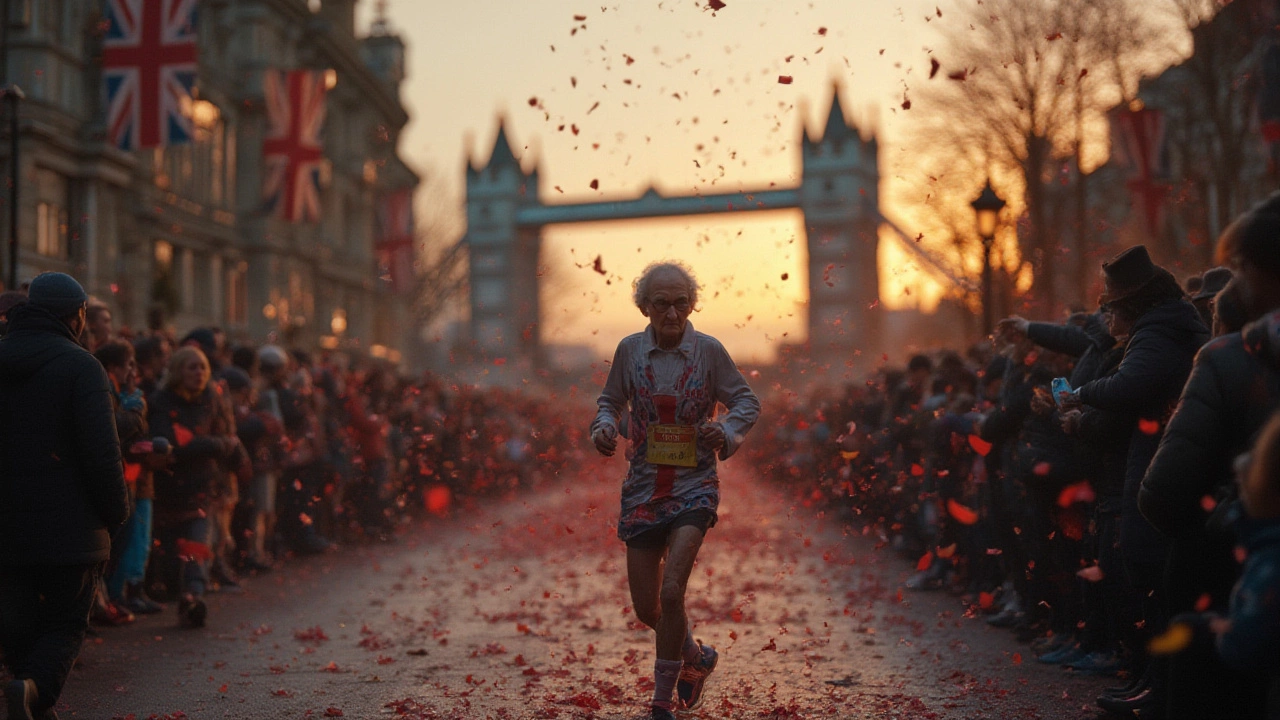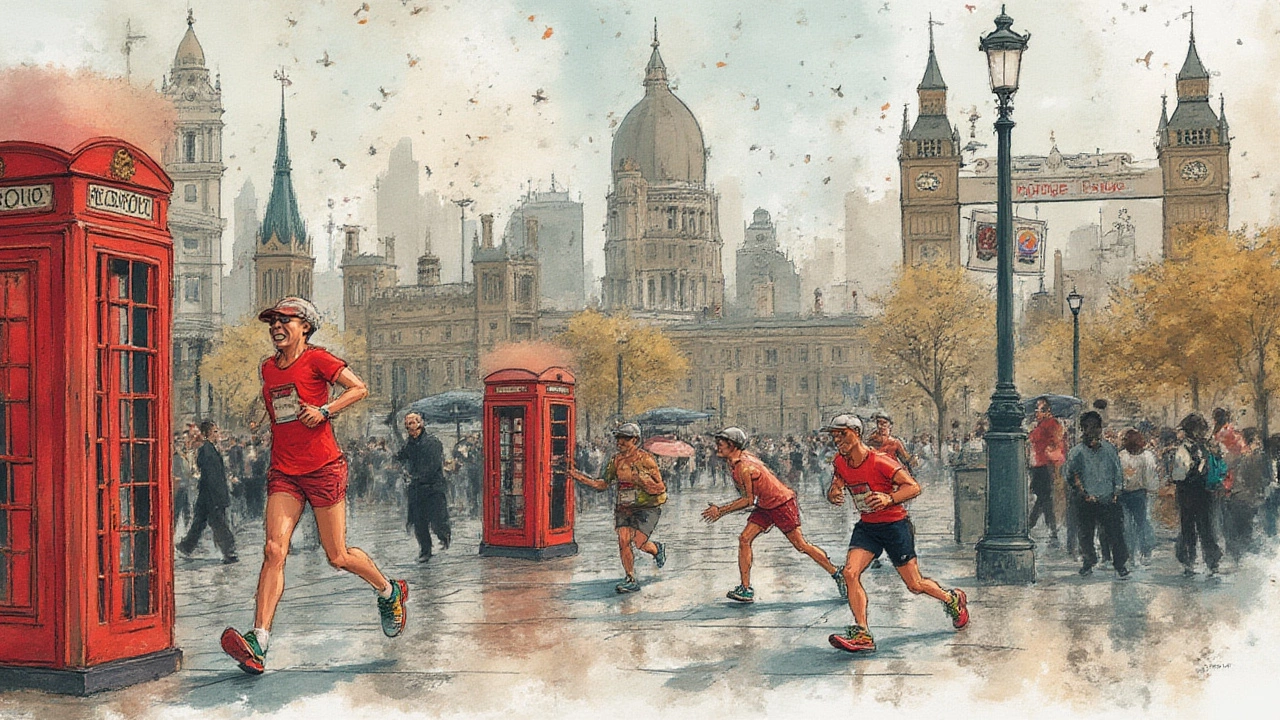Slowest Marathon Time Ever: True Stories and Strange Records in Marathons

If you thought marathons were only about speed, think again. Most people see marathon running as a race against the clock—and for elite runners, it definitely is. We expect to hear about lightning-quick records and the crazy stamina of the world’s fastest. But sometimes, the slowest times steal the show for all the right reasons. Imagine crossing a marathon finish line not hours but decades after the start gun fired. Yes, that’s actually happened! Forget shaving off a few minutes—some runners have finished marathons with so much patience, they belong in the history books for reasons you might not expect. There’s a whole world of epic stories behind those who took the longest to cross the line, and trust me, you won’t look at the finish line the same way again.
The Slowest Recorded Marathon Time and Its Remarkable Story
We usually ask, “What’s the fastest marathon ever?” But the slowest? That’s a richer question. When talking about the slowest marathon of all time, most headlines point straight at Shizo Kanakuri, whose marathon journey is nothing short of legendary. During the 1912 Stockholm Olympics, Kanakuri, a Japanese runner, collapsed mid-race from heat and exhaustion—back then, hydration stations and energy gels weren’t even a dream! Instead of finishing, he left Sweden quietly, embarrassed. But here’s where it gets wild: Kanakuri technically never finished that marathon—at least, not for over 54 years. In 1967, Swedish officials invited him back to finish what he’d started. He finally crossed the line with a total official time of 54 years, 8 months, 6 days, 5 hours, 32 minutes, and 20.3 seconds. Yes, he still holds the record for the slowest marathon time ever recorded by a single runner in history.
This wasn’t some fluke or a joke entry. The event reflected the true heart of marathoning: determination and spirit. While Kanakuri didn’t race for fame, his friendly demeanor and willingness to return so many years later made him a symbol of sportsmanship—and, honestly, human quirkiness. Today in Sweden and Japan, he’s sometimes cheekily called “the father of the marathon nap.” His name crops up in trivia contests and pub quizzes, and if you Google “slowest marathon ever,” his epic delay always comes up first.
But Kanakuri’s story isn’t the only bizarre tale among slow marathon completions. There are others who went viral for their stoppages and adventures along the way. For instance, Lloyd Scott, a British charity fundraiser, completed the 2002 London Marathon while wearing a 130-pound deep-sea diving suit. It took him 5 days, 8 hours, 29 minutes, and 46 seconds. Imagine slogging through over 26 miles in medieval-level gear—he turned fundraising into absolute theatre. Then you’ve got the Turtle Marathon held in Japan, where the aim is intentionally to finish dead last. It all goes to show: fastest isn’t always the most interesting.
That doesn’t mean there aren’t official cutoff times. Most big-city marathons give you about 6-8 hours to wrap it up, after which you may not be an official finisher (though many still let you walk to the line). Average marathon finish times hover around 4 hours, 30 minutes for regular folks. But every year, there’s someone who gets lost, gets distracted, helps others, or turns their marathon into a personal adventure, clocking a time way outside the curve—and the stories are pure gold for anyone who loves running, or just loves rooting for the underdog.

Unusual Marathon Delays and the Curiosities Behind Them
So, what actually causes runners to clock these marathon “anti-records”? Mostly, it’s not just about plodding along slowly. The truth is, strange circumstances push people into slow finishes. Maybe the course is bonkers—think marathons up mountains, through desert sands, or laps inside a prison yard. Maybe costumes get in the way. Or maybe, like Shizo Kanakuri, life pulls the runner a million miles from the finish before they can circle back decades later.
If you walk through some of the weirdest marathon finishes, you’ll hit stories like David Babcock’s 2013 Kansas City Marathon, where he knitted a 12-foot-long scarf while running, landing himself an equally bizarre record. Or think of Fauja Singh, who completed the Toronto Waterfront Marathon at age 100 in just over 8 hours—decades slower than the best elites, but honestly, who cares about speed if you’re running strong at a century old?
Turning to major events, even the World Marathon Majors—London, Boston, Tokyo, Berlin, Chicago, New York—see their fair share of delayed finishers. After the main event winds down, organizers start cleaning up, but that doesn’t stop determined runners. You’ll find runners finishing after 8, sometimes 10 hours, with crowds of volunteers, family, and the occasional news crew cheering them on. These folks often overcome physical challenges, injury, or personal barriers. One memorable story: In 1986, Bob Wieland finished the New York City Marathon in just under 5 days—by literally walking on his hands, as he lost both legs in the Vietnam War. The phrase “never give up” feels weak compared to that.
Want to see how marathon times compare? Here’s a breakdown of finish times for different types of runners as reported by Marathon Handbook and official race organizers:
| Runner Category | Average Marathon Finishing Time |
|---|---|
| Elite Men | 2h 02min – 2h 10min |
| Elite Women | 2h 15min – 2h 25min |
| Recreational Men | 4h 20min – 4h 50min |
| Recreational Women | 4h 45min – 5h 20min |
| Fundraisers/Costumed/Adventurers | 6h+ |
| Record Slowest Ever (Shizo Kanakuri) | 54 years + |
Procrastinators might have a new hero, but these slow times also highlight the wild variety of humans and goals at the start line. From professional runners to moms, grandpas, and off-the-wall record chasers, everyone shows up for their own reasons. That’s a big part of what keeps the marathon vibe so infectious.
Here’s a fun fact: slow finsihers often receive the loudest cheers! If you’re ever at a big marathon, stay late and watch the final runners come through. Their triumph isn’t about seconds or minutes, but about crossing that line—no matter how long it takes.

Why Slow Marathon Times Matter and What You Can Learn from Them
Most people assume only the fastest runners matter, but actually, slow marathon finishers often bring some of the most inspiring life lessons to the surface. For starters, they remind us that running isn’t just about beating the clock. It’s about showing up, moving forward, pushing through the tough miles, and celebrating your own achievement, no matter how quirky or slow the journey. After all, the world keeps giving out medals to finishers, not just winners!
If you’re considering running a marathon, don’t let pace scare you. Take your cue from the ones who triumphed in their own unorthodox way. The stories of Kanakuri, Scott, Babcock, and others have inspired thousands to show up on race day just to see how far they can go. Worried about taking too long? Organizers usually have back-of-the-pack support, and you’ll almost always find a group willing to buddy up for a long, slow finish. Plus, many races now allow walkers.
Here are a few tips if you’re eyeing a slow marathon (or just want to enjoy the journey):
- Start slow: There’s no shame in jogging or walking the opening miles.
- Hydrate regularly: Slow runners are out in the sun longer, so drink up.
- Pack snacks you love: You’ll want carb-rich snacks if you’re on your feet for 6+ hours.
- Bring entertainment: Audiobooks, podcasts, or even creative challenges (scarf knitting, anyone?) can make time fly.
- Find your community: Lots of marathons have “sweeper buses” or groups for the back-of-the-pack. Join up!
- Embrace your story: People remember the runner who danced, the woman who finished in a wedding dress, the dad who stopped to Facetime his kids at mile 20. Make it yours.
And remember, finishing a marathon—no matter the time—puts you among a pretty select bunch. Fewer than 1% of people worldwide ever finish one. While elites chase world records, the spirit of the marathon will always belong to those who keep coming back, ready to finish, even if it takes half a century or a backpack full of patience. That finish line never moves—but the hearts behind every finish tell a thousand stories. So, whether you’re plotting to break 3 hours or just hit the finish before the street cleaners, there’s room for every pace. Legends like Kanakuri prove—sometimes the slowest journey makes the best memory.
